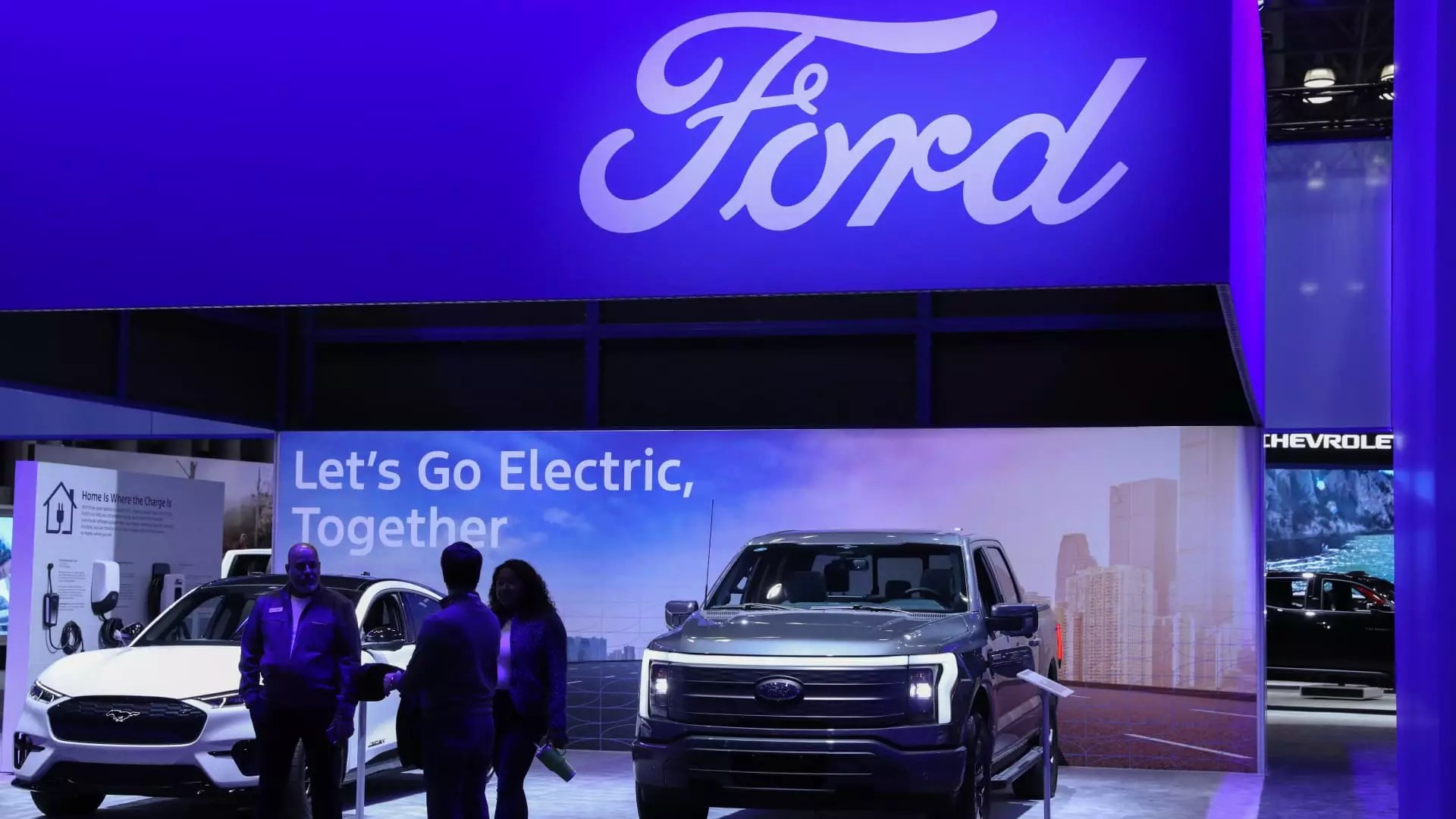Ford Motor’s recent announcement regarding the delay in production of their next-generation all-electric pickup truck and the cancellation of plans for a three-row electric SUV has sparked discussions within the automotive industry. The decision to prioritize the development of hybrid models and electric commercial vehicles signifies a shift in the company’s electric vehicle strategy. Let’s delve deeper into the implications of these changes and how they align with Ford’s long-term goals.
The decision to delay the production of the all-electric pickup truck and forego the three-row electric SUV in favor of hybrid models and electric commercial vehicles is a strategic move by Ford to focus on segments where they have a competitive advantage. By investing in commercial land trucks and SUVs, Ford aims to deliver a capital-efficient and profitable electric vehicle business. However, this shift in strategy comes with short-term costs, as evidenced by the $400 million noncash charge for the write-down of certain product-specific manufacturing assets and potential additional expenses of up to $1.5 billion.
Ford’s CFO, John Lawler, highlighted the company’s learnings from the marketplace, indicating that customers are gravitating towards electrification choices. The decision to prioritize hybrid models and electric commercial vehicles aligns with customer preferences and positions Ford for success in the evolving automotive landscape. By allocating resources towards segments with higher demand, Ford aims to enhance its competitive position and drive profitability in the long run.
The shift in Ford’s capital expenditure plans from spending 40% on all-electric vehicles to 30% reflects a recalibration of the company’s priorities. While the new approach may delay the production of certain electric vehicles, it underscores Ford’s commitment to adapting to market dynamics and customer preferences. The decision to focus on commercial vehicles and hybrid models sets the stage for Ford’s future growth and sustainability in an increasingly electrified automotive industry.
Ford’s decision to realign its electric vehicle strategy comes amidst slower-than-expected adoption of EVs and challenges related to profitability. By listening to customer feedback and being nimble in their approach, Ford seeks to address these challenges and capitalize on the opportunities presented by the shift towards electrification. The introduction of a new electric commercial van and EV pickup trucks in 2026 and 2027 respectively signals Ford’s commitment to innovation and competitiveness in the electric vehicle market.
Ford Motor’s strategic shift in prioritizing hybrid models and electric commercial vehicles over all-electric pickups and SUVs reflects a calculated approach to align with market trends and customer preferences. The decision to invest in segments where Ford has a competitive advantage demonstrates the company’s commitment to building a capital-efficient and profitable electric vehicle business. As Ford continues to navigate the evolving landscape of the automotive industry, its focus on commercial vehicles and hybrid models positions it for sustainable growth and success in the electrified future.


Leave a Reply